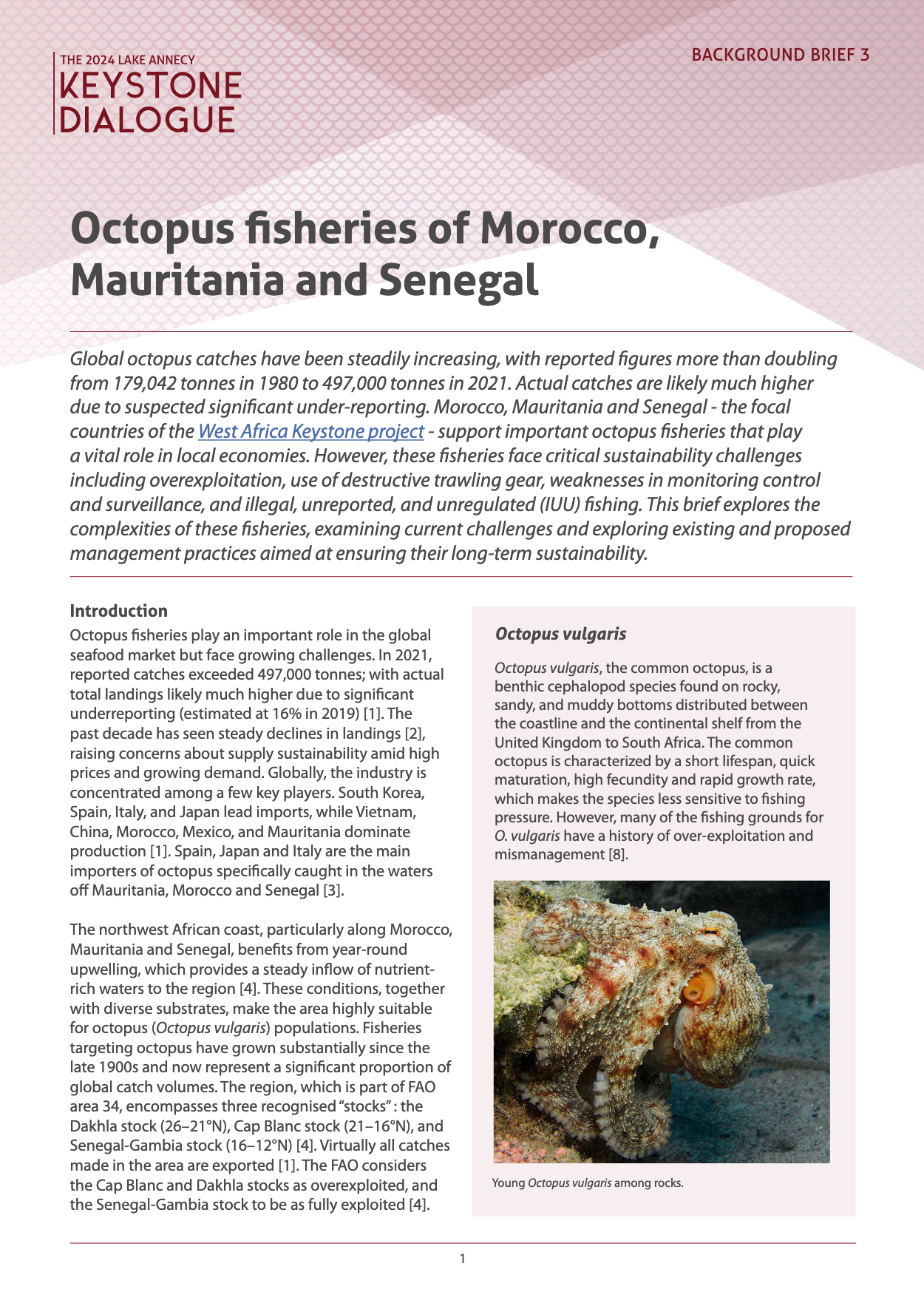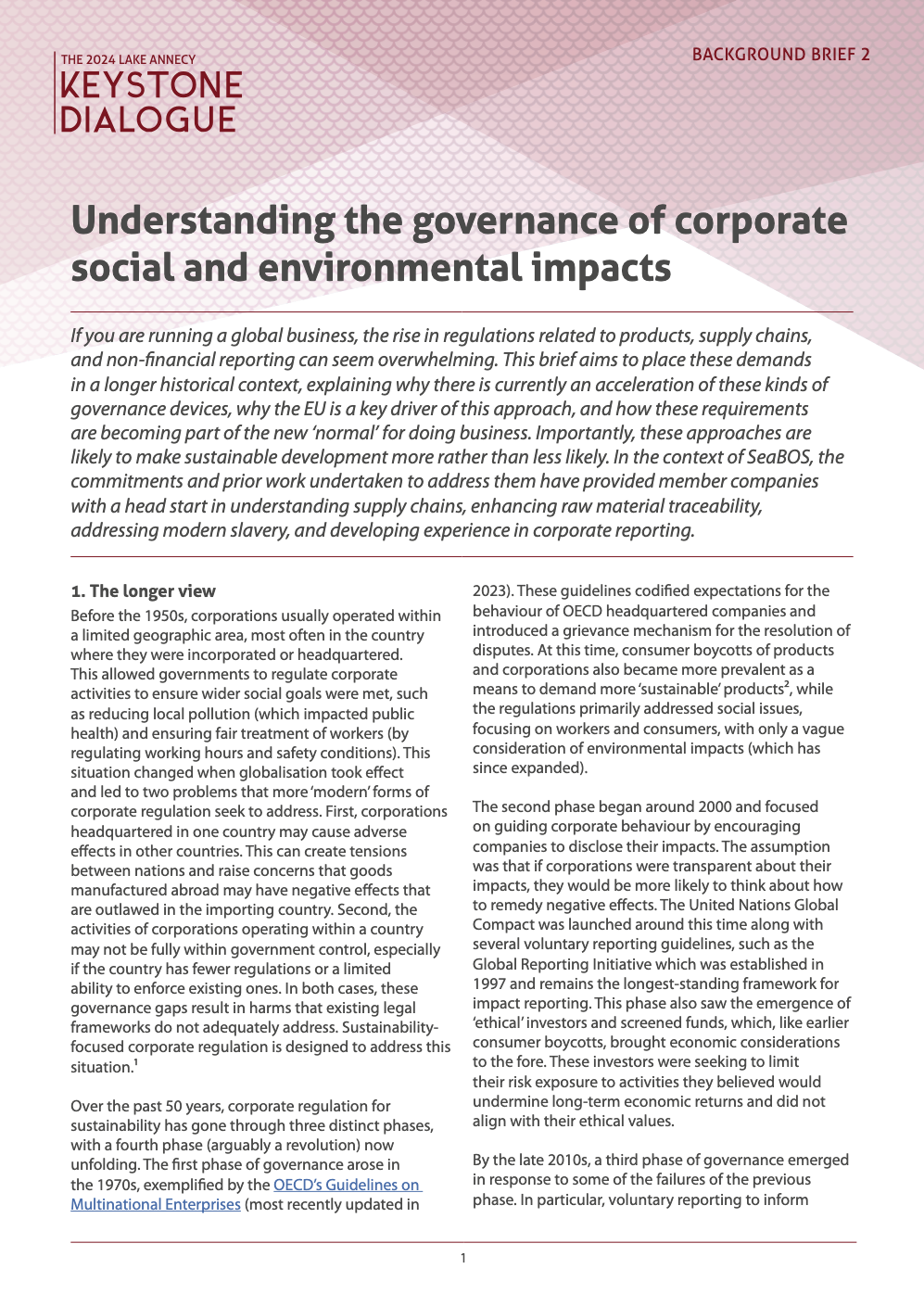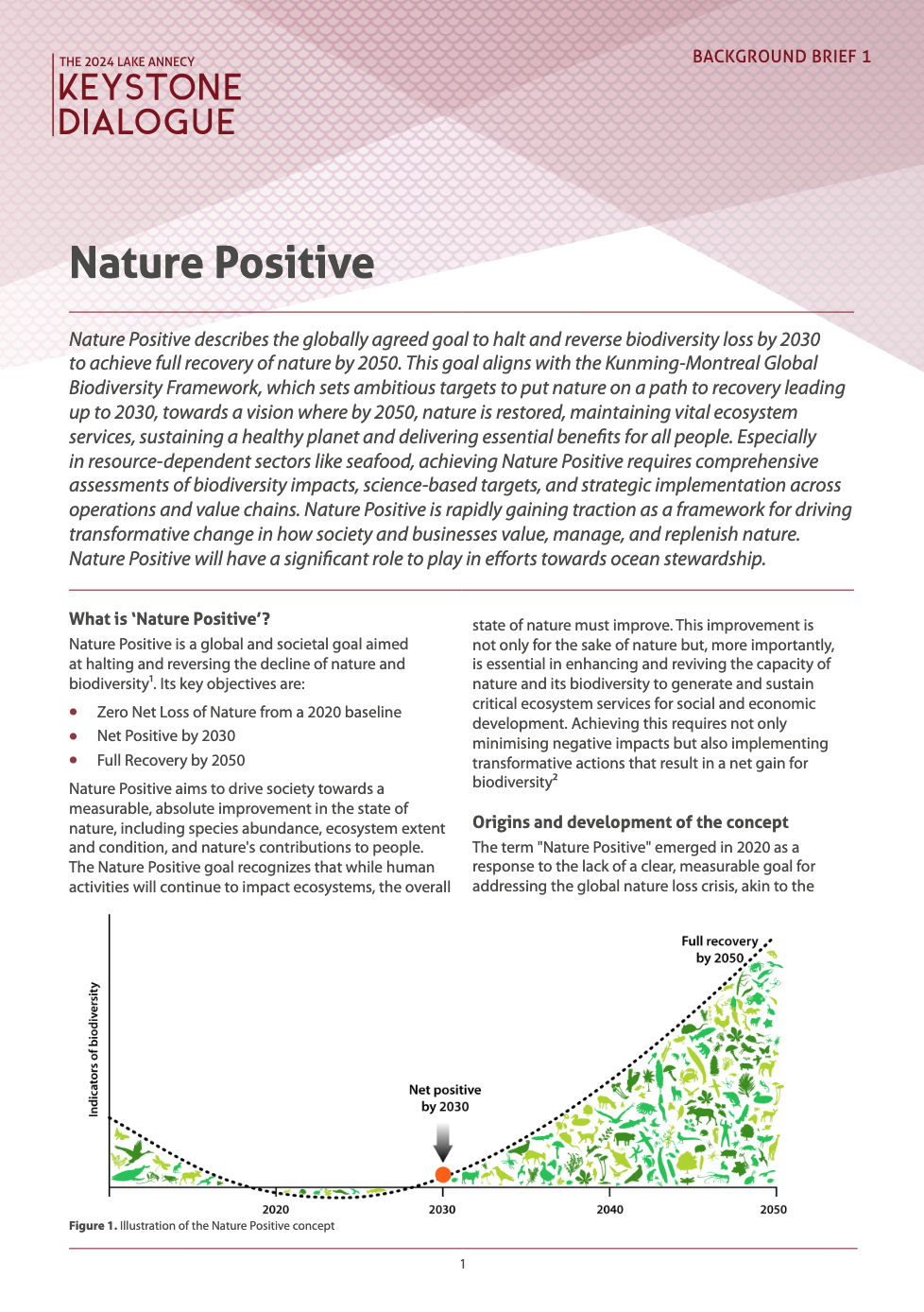
The annual Keystone Dialogue was held at Lake Annecy in France with the core theme of “Impact from Leadership”. This reflects a focus on optimizing the collaboration to deliver on the vision of SeaBOS by demonstrating leadership, collective action for impact, and concrete science-based steps towards ocean stewardship. In addition to discussing new time-bound goals, participants did a stocktake of the first year of implementation of the two current Keystone Projects. The Keystone Projects are intended to develop solutions to key challenges of the seafood industry, delivering change on the ground, in company operations, and supply chains, in line with SeaBOS commitments.
Key outcomes and highlights from the Dialogue included:
- Agreement to implement the second year of the Antimicrobial Resistance (AMR) Keystone Project and the West Coast Africa Keystone Project (Development of a Framework to Address IUU Fishing and Modern Slavery).
- Further develop concepts for two new Keystone Projects for possible implementation from 2025 on financial risks of climate impacts on seafood production and on waste and byproducts utilisation.
- Agreement on recommendations from an internal review of SeaBOS activities, with improved clarification on roles and responsibilities, as well as strengthening the organization and structural elements to support effective delivery of joint activities and science-industry solutions for ocean stewardship.
- Insights from a facilitated workshop ‘Leading Together’ with CEOs and Science leaders, including development of new selection processes and project management arrangements for keystone projects, with greater CEO involvement in future direction and strategy setting.
- Review Task Force I (IUU fishing and modern slavery) time-bound goals in relation to supply chains, recognising the global nature of the problem and the need to act swiftly and transparently.
- Implement Task Force II (Biodiversity and Ecosystems) recommendation to assess and disclose their risks, dependencies, and impacts on biodiversity across own operations and supply chains by October 2025
- Review Task Force III (Antimicrobial Resistance) Code of Conduct for implementation and continue annual survey of antibiotics use.
- Advance Task Force IV (Climate Resilience) supply chain engagement program on GHG emissions reductions and support a scoping project with external partners to develop a concept for reducing GHG emissions in vessel operations.
- Expand Task Force V (Plastics) work to create a roadmap of best practice, including Extended Producer Responsibility Strategy elements, while continuing beach cleanups and reporting on plastics footprint reductions by each company.
- Development of an Impact Report 2025 to ensure transparency, progress, and accountability.
- Elected Helene Ziv-Douki to be Chair, and President Shingo Hamada to be Vice Chair of the SeaBOS Association for 2024 – 2026 inclusive
Short recordings from key office bearers can be found here:
Khun Thiraphong Chansiri (outgoing Chair SeaBOS Association)
Helene Ziv-Douki (incoming Chair SeaBOS Association)



